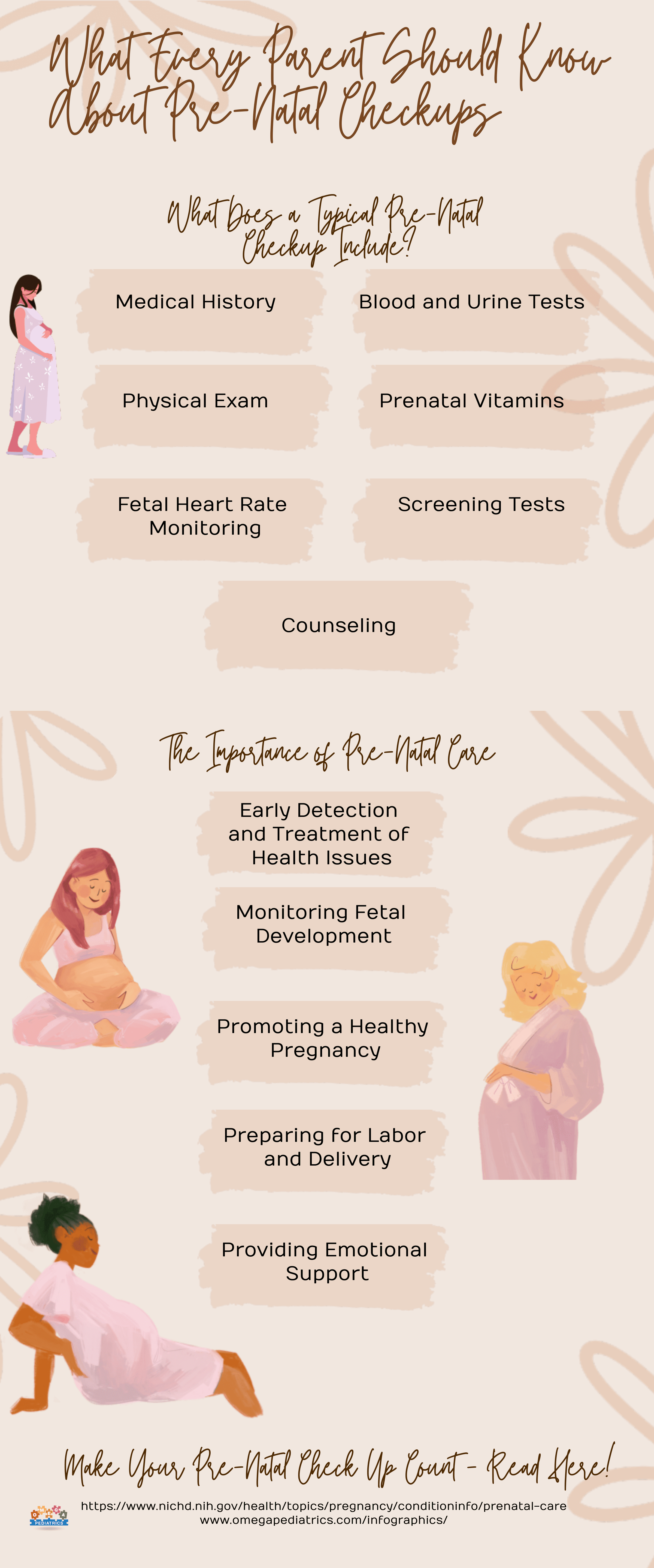
What Does a Typical Pre-Natal Checkup Include?
A typical prenatal checkup is a regular visit to the obstetrician or midwife during pregnancy to check the health of both the mother and the developing fetus. Here are some of the things that may be included in a typical prenatal checkup:
- Medical History: The healthcare provider will ask the mother about her medical history, including any pre-existing conditions, previous pregnancies, surgeries, and current medications.
- Physical Exam: The healthcare provider will perform a physical exam, which may include determining the mother’s weight, blood pressure, and checking the size of the uterus.
- Fetal Heart Rate Monitoring: The healthcare provider will use a fetal Doppler or ultrasound to listen to the fetal heart rate and monitor the baby’s progress.
- Blood and Urine Tests: The healthcare provider may order blood and urine tests to check for various conditions such as anemia, gestational diabetes, and urinary tract infections.
- Prenatal Vitamins: The healthcare provider will recommend taking prenatal vitamins to ensure the mother and baby are getting the necessary nutrients for healthy development.
- Screening Tests: The healthcare provider may recommend screening tests, such as ultrasound or amniocentesis, to check for genetic or chromosomal abnormalities.
- Counseling: The healthcare provider may provide counseling on various topics such as diet, exercise, labor and delivery options, and breastfeeding.
The Importance of Pre-Natal Care
- Early Detection and Treatment of Health Issues: Regular prenatal checkups allow healthcare providers to monitor the mother’s health and detect any potential health issues early. This includes conditions such as gestational diabetes, hypertension, or infections that can affect the health of the mother or the developing fetus. Early detection and treatment can prevent complications and improve outcomes for both the mother and baby.
- Monitoring Fetal Development: Prenatal care also includes monitoring the growth and development of the fetus. Healthcare providers can use various tools such as ultrasounds to track the baby’s growth and identify any potential concerns.
- Promoting a Healthy Pregnancy: Prenatal care involves counseling on various topics such as nutrition, exercise, and healthy lifestyle choices. This can help to ensure a healthy pregnancy and reduce the risk of complications such as premature birth or low birth weight.
- Preparing for Labor and Delivery: Prenatal care includes preparing for labor and delivery by discussing options for pain management, delivery location, and other factors that can impact the childbirth experience.
- Providing Emotional Support: Pregnancy can be an emotionally challenging time for many women, and prenatal care provides an opportunity to discuss any concerns or fears with a healthcare provider. This can help to reduce stress and anxiety and promote overall emotional well-being.



